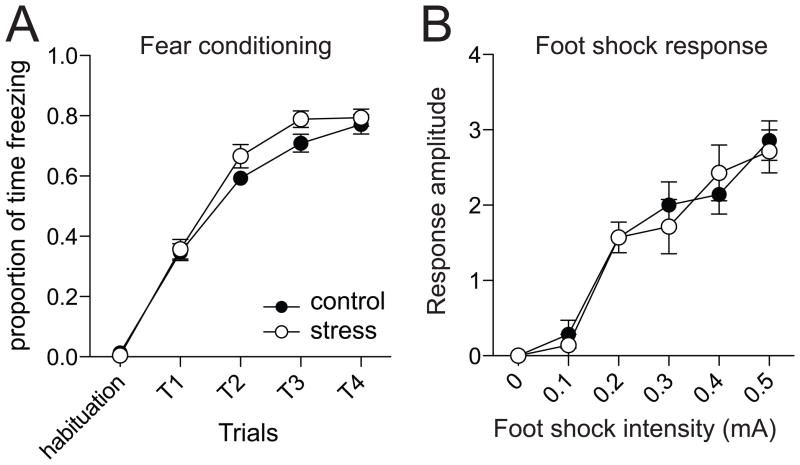Figure 1. Repeated stress does not significantly increase fear acquisition or response to unconditioned stimulus.
A) During the course of fear conditioning, a tone is paired with a footshock. The freezing response to the paired tone increases during the conditioning procedure. However, repeated restraint stress does not increase the freezing response observed during the conditioning procedure. B) The response to increasing amplitude footshock can be measured as an indication of the response to the unconditioned stimulus. Repeated restraint stress does not increase responsiveness to the footshock. Here, and in all plots, data points represent mean ± SEM.

